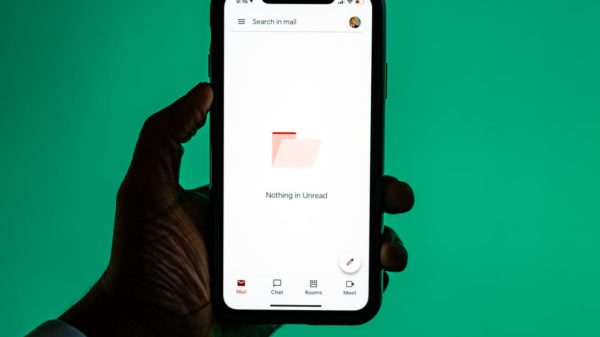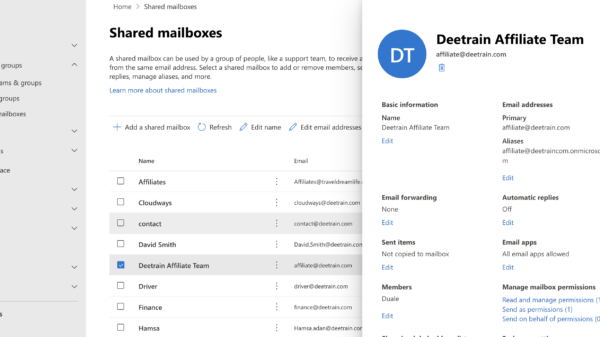There are various reasons why employers track the electronic devices used by their workers. The majority of the time, it is used to measure employee productivity and manage and defend its security. However, if you are on the receiving side of these tracking tactics, it might seem a lot like an invasion of your personal information.
Through the use of a VPN, your employer will not monitor your online activities or view your browser history. It’s vital to understand that your browser history is saved locally on your device, which means that your employer can request it if they are truly interested.
When using a VPN to safeguard your privacy or to access restricted information, you may be concerned that your employer may be able to see what you’re doing on the network. This depends on the VPN provider and how your company’s network is set up to answer the question in full. Learn more about how a virtual private network (VPN) works and whether it may help you remain anonymous at work.
Is it possible to remain anonymous from your employer using a VPN?
Yes, I believe it will. VPNs are a wonderful tool for keeping your information private. They encrypt your information while it is being transmitted over a network so that your employer will not see what you are doing on your computer.
However, using a VPN on a corporate-owned device is not recommended since there is a possibility that you could be accused of meddling with company property. Before deciding to utilize a virtual private network (VPN) to conceal your identity from your employer, there are various factors to consider.
First and foremost, you must be aware of the dangers of utilizing a virtual private network (VPN) at work and decide whether or not it is a risk you are ready to accept. A virtual private network (VPN) is an excellent tool for keeping your internet behavior secret from your employer.
If you connect to a VPN server, your data will be routed through the VPN server rather than through your ISP. This makes it more difficult for anyone to monitor what you are doing on the internet in the future.
However, not all virtual private network (VPN) services are equal. As a result, it is critical to conduct thorough research before picking a service provider. If you don’t do this, you may not be able to rely on the VPN to keep your identity hidden.
The reasons why businesses monitor their workers’ online activities:
The majority of businesses track their workers’ online behavior for various reasons. As previously stated, one reasonable rationale for why tracking is performed is to ensure that security rules are met.
These rules compel firms (mainly investment firms or government-related organizations) to monitor all of their internal networks to avoid fraud and hacking and have the ability to track out the source of a problem if one happens.
Another cause that may be outdated in today’s society persists is a lack of faith in their employees’ abilities and judgment. Companies attempt to assess employee productivity by keeping track of software and internet usage and active and idle periods.
They keep track of how much time is spent online, which websites are visited, and which files are downloaded, which does not make one feel secure or private in any way.
What methods may businesses use to keep track of their employees’ internet activity?
A man-in-the-middle technique monitors employees’ internet activity, and it is a common practice in many businesses. The employer’s network can be configured so that all internet traffic is routed through a rogue proxy server, which can intercept any communication and read the contents of that traffic.
The router or proxy server might be located within a corporate structure or in the data center, and a network manager who has access to the server, either online or physically, will be able to observe all internet traffic flowing via the employer’s network.
This server, which acts as a middleman, records all internet activities, including when you connected to which website, whether you streamed films or played games, and if you downloaded files. Everything is recorded on this server, which the employer owns.
Contracts with their Internet Service Provider, which acts as a man-in-the-middle and provides regular reports on the online activities carried out from the company’s network, are sometimes entered into by businesses who do not have an IT unit or resources devoted to tracking their employees.
An ISP has access to everything, including IPS, client-server, sites or files accessed, and other information, among other things.
When you realize that your employer may record and use your data, it might make you feel uneasy. Fortunately, there is a solution to keep your web browsing private while at work.
How can you keep your browsing history hidden from your boss?
A virtual private network (VPN) keeps your internet activity hidden from your employer and only stores your browser history on the router or the server. You should be aware that browser history files are stored locally on your device and that your employer may request to see them if they are truly interested.
The most straightforward method of keeping your browser history concealed from your employer is to use a VPN in conjunction with an incognito window.
When you shut an incognito window, all of your browser history files and cookies are automatically removed from your computer. This feature is available on every browser and is ideal for keeping your browsing data as clean as possible all of the time.
How Can I Keep My IP Address a Secret from My Employer?
It is possible to conceal an IP address using either a proxy server or a virtual private network (VPN). Tor is another excellent technology for achieving complete anonymity, although it is extremely sluggish and is not required by most users. Your traffic is routed via an intermediate server before reaching its destination using a proxy server.
Is it possible for my employer to see that I am using Incognito Mode?
You may be able to use hidden or incognito mode. When you access the internet over your company’s network, your employer’s IT personnel can see what you’re doing, even if you’re using incognito mode. This is true even if you don’t delete your browsing history when using this model.
Is it possible for my employer to see what websites I visit while using my phone VPN?
Your employer may keep an eye on you if you engage in activities that are prohibited by business policy, such as accessing torrents, mining Bitcoin, or viewing pornographic websites. Employers are also required to keep track of employee behavior, which VPN providers should avoid.
Conclusion
It’s critical to know the answer to this question, whether you’re an employer or an employee in any capacity. If you’re searching for a solution to keep your internet activities hidden from your boss, a virtual private network (VPN) is an excellent choice.
You may, however, be putting yourself in danger if your firm has particular regulations in place restricting the usage of virtual private networks (VPNs). In the end, it is up to you to determine if the advantages of utilizing a VPN exceed the hazards associated with doing so.









